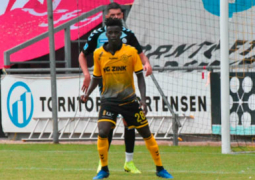The Centre for Street Children and Child Trafficking Studies (CSCATS) and Consortium of Child Rights Organisations in the country recently concluded a two-day training of trainers’ seminar for their member organisations and networks for vulnerable children.
Held at the Paradise Suites Hotel in Kololi, the training, funded by the International Social Services Swiss foundation (ISS), brought together a wide range of experts and practitioners on peer work, outreach work and early intervention on the work of vulnerable children.
It also aims to boost peer and outreach work in the consortium by sharing experience, lessons learned and examples of good practice.
Peer work is often used as an umbrella term to describe a range of methods that involves members of particular target groups in delivering child rights promotion activities to their peers.
It is based on the belief that peers can be more successful than professionals in passing on information, sharing knowledge and supporting their peers. Peer work is seen as valuable additional methods to reach out, inform and support communities.
There are various ways of involving peer members in social and child rights work, varying from involvement of group members of service delivery to participatory forms of engagement whereby communities also develop and adapt responses to child right protection and social issues.
The seminar also provided a wide range of presentations and skills building work to initiate and sustain inclusive working methods.
Speaking at the opening ceremony, Social Welfare Director Fanta Bai Secka says networking on children issue is very important because it helps to link the international experiences and advocates and supports initiation of member peer involvement in outreach settings, services delivery and policymaking.
The chief executive officer of the network, Sheikh E.T. Lewis, said children in street should be well protected and returned to their parents.




